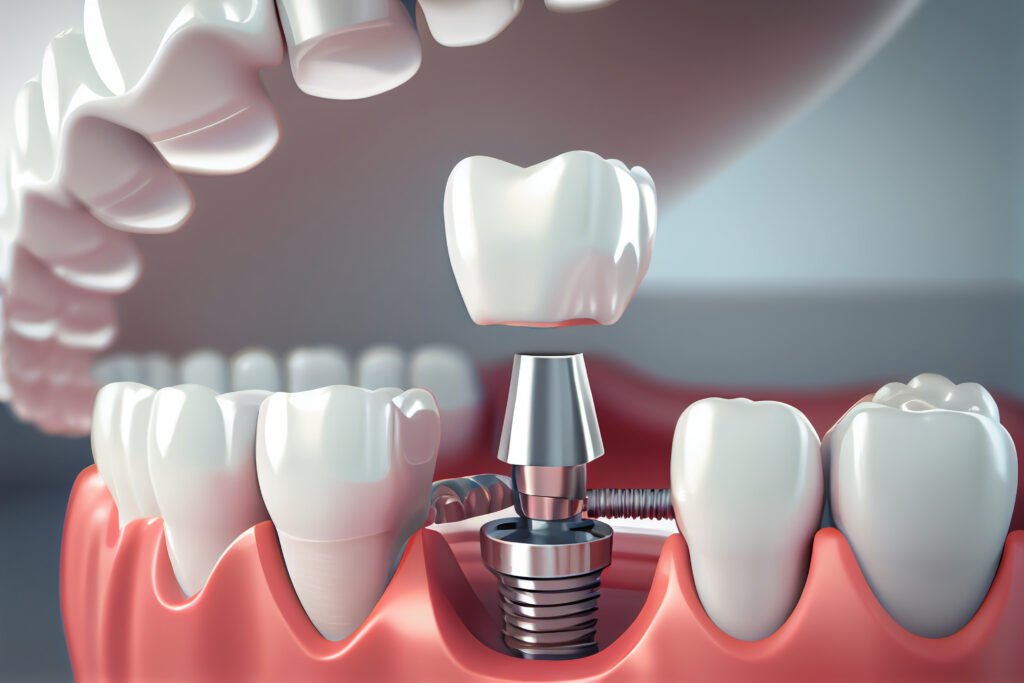Are you tired of hiding your smile because of missing teeth? Dental implants could be the solution you’ve been looking for! Let’s explore the world of dental implants together, from the process and benefits to potential risks and how to minimize them. Don’t let fear hold you back from achieving a confident smile – read on to learn more about this life-changing option.
The Process of Getting Dental Implants
Considering dental implants to restore your smile and oral health is a significant decision. The process begins with a comprehensive consultation with a qualified dentist or oral surgeon. During this initial visit, the dental professional will evaluate your overall oral health and determine if you are a suitable candidate for implants.
Once deemed eligible for the procedure, the next step involves creating a personalized treatment plan tailored to your specific needs. This plan may include procedures such as bone grafting or tooth extractions to ensure optimal implant placement.
The actual implant procedure typically involves several stages, including placing the titanium implant into the jawbone and allowing time for osseointegration – where the bone fuses with the implant. Following this healing period, an abutment is attached to the implant, which serves as a connector for the dental crown or prosthetic tooth.
While getting dental implants requires commitment and patience throughout the process, many patients find that the results are well worth it in terms of both aesthetics and functionality.
Benefits of Dental Implants
When it comes to dental implants, the benefits can be life-changing. One of the primary advantages is improved appearance and confidence. Dental implants look and feel like natural teeth, enhancing your smile and overall self-esteem.
Another key benefit is functionality. Unlike removable dentures, implants are securely anchored in your jawbone, allowing you to eat and speak with ease. This stability can make a significant difference in your daily life.
Moreover, dental implants promote oral health by preserving adjacent teeth. Unlike traditional bridges that require altering neighbouring teeth for support, implants stand independently without affecting surrounding healthy teeth.
Furthermore, durability is a major perk of dental implants. With proper care and maintenance, they can last a lifetime, providing long-term value for your investment in your oral health.
In addition to these practical benefits, many patients also appreciate the convenience of not having to deal with adhesives or removal at night like with dentures. Dental implants blend seamlessly into your lifestyle for added comfort and ease.
Potential Risks and Complications
When considering dental implants, it’s essential to be aware of the potential risks and complications that may arise. While dental implant surgery is generally safe, like any surgical procedure, there are inherent risks involved.
One possible risk is infection at the implant site, which can lead to discomfort or even implant failure if not promptly treated. Additionally, nerve damage could occur during the placement of the implant, resulting in numbness or tingling in the surrounding areas.
Complications such as implant rejection or improper fusion with the jawbone may also arise, requiring additional procedures to address. In some cases, sinus issues near the implant site can develop post-surgery.
Patients must discuss these potential risks with their dentist and follow all post-operative care instructions diligently to minimize any complications that may arise during the recovery process.
Risk Factors for Dental Implants
When considering dental implants, it’s crucial to be aware of the potential risk factors that could impact the success of the procedure. One significant factor is poor oral hygiene, as this can lead to infections and complications post-implantation. Smoking is another key risk factor, as it can inhibit proper healing and increase the likelihood of implant failure.
Medical conditions like diabetes or autoimmune disorders may also pose risks for dental implants due to impaired healing processes. Additionally, insufficient bone density in the jaw can affect the stability of the implant and its long-term success.
Furthermore, a history of gum disease or untreated cavities can jeopardize the outcome of dental implant surgery. Patients need to disclose their complete medical history and follow pre- and post-operative instructions diligently to minimize these risk factors and maximize the chances of a successful implant placement.
How to Minimize the Risks
When considering dental implants, it’s essential to be aware of the potential risks involved. While complications are rare, there are steps you can take to minimize these risks and ensure a successful outcome.
Choose an experienced and qualified implant dentist. Research their credentials and ask about their experience with implant procedures. A skilled professional can greatly reduce the chances of complications during the process.
Follow your dentist’s post-operative instructions diligently. Proper oral hygiene is crucial for preventing infections that could jeopardize the success of your implants. Maintaining good oral care habits will help minimize any associated risks.
Attend all follow-up appointments as scheduled. Regular check-ups allow your dentist to monitor the healing process and address any issues promptly before they escalate.
Communicate openly with your dental team about any concerns or changes you notice in your oral health. Early detection of problems can prevent complications down the road and ensure optimal results from your dental implant procedure.
Conclusion
While there are risks associated with dental implants, the benefits often outweigh them for many individuals. The improved quality of life, functionality, and aesthetics that dental implants provide can be truly transformative. By understanding the potential risks, being aware of risk factors, and taking steps to minimize these risks through proper oral hygiene and regular check-ups with your dentist, you can significantly increase the chances of a successful implant procedure.
Consulting with a qualified dental professional is key to determining if dental implants are the right choice for you. With proper care before, during, and after the procedure, dental implants can offer long-lasting results that greatly enhance your smile and overall oral health. So, when weighing the risks against the numerous benefits that come with dental implants – it’s clear that for many people facing tooth loss or other dental issues – they are indeed worth it.
